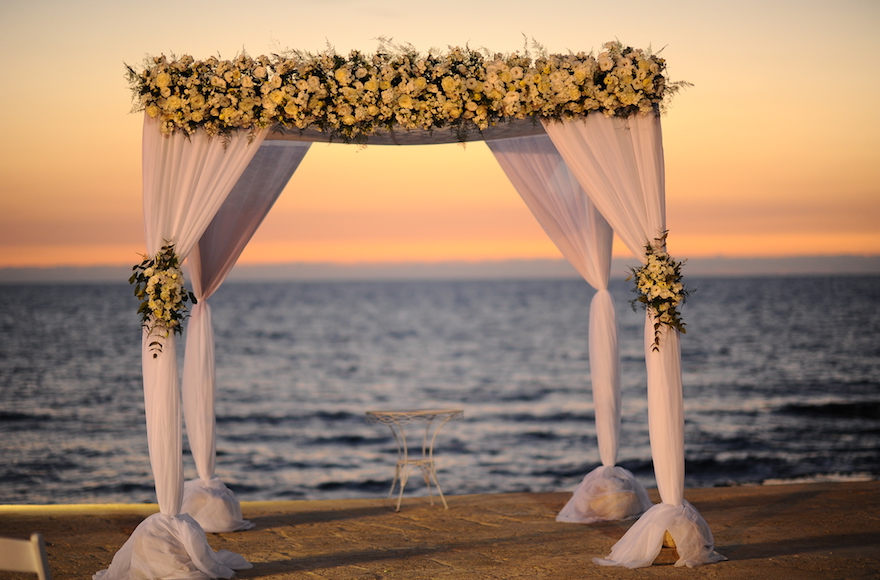JERUSALEM (JTA) — Israel’s Chief Rabbinate holds absolute power in key areas over the religious definition of what – and who – is Jewish. This monopoly — empowered, funded and perpetuated by the state — has given the haredi Orthodox-controlled body the license to exclude major segments of the Jewish community within and outside Israel, including adherents of varieties of Orthodoxy, such as Modern Orthodoxy, of which they disapprove.
In the latest example of such power, the Chief Rabbinate has issued a list of criteria for the overseas rabbinical courts that it recognizes in the areas of divorce, conversion and Jewish status. While some praised the Chief Rabbinate for transparency, critics said the list is outdated and omits rabbinical courts that operate in Modern Orthodox communities. The Chief Rabbinate’s new initiative is intended, among other things, to undermine Modern Orthodoxy by denying recognition to conversions performed by some of the leading lights of that stream of Orthodoxy.
In reaction, some Orthodox critics have committed themselves to fight via legal and public avenues until the Chief Rabbinate becomes more inclusive of the broad swath of present-day Orthodoxy.
We offer a radically different, more inclusive response. As rabbis representing the full spectrum of Jewish denominational life, including the non-Orthodox denominations long excluded by the Chief Rabbinate, we no longer expect any flexibility, decency or inclusiveness from a body controlled by a monopoly that represents such a small, fundamentalist sliver of the Jewish rainbow. .
Further, we view it as inappropriate to seek relief through the civil court system. Diverse interpretations of Jewish law are natural. Using civil law to force religious authorities to validate procedures against their religious conscience is an act of religious coercion.
Recent developments underscore the need to move on to a different model of religion-state relations — and abolish the Chief Rabbinate as an arm of the state.
The existence of the Chief Rabbinate as an arm of the state violates the core principles of democracy. It is rejected by the overwhelming majority of Israeli Jews. No contemporary democratic Jewish community would submit itself to a monopolistic Orthodox rabbinic authority. Only in today’s Israel, under the pretense of maintaining Israel’s identity as a Jewish state, has the government put a system of religious exclusivity in place. This allows the Chief Rabbinate to impose its will on the religious practices of Jews in Israel and now abroad.
A number of months ago, an alternative model was proposed – one that is unifying, Jewish and democratic in character. “A Vision Statement: Israel as a Jewish and Democratic State” was written by a Reform rabbi and an Orthodox rabbi and signed by rabbis and communal leaders of all denominations and diverse political views. It addresses all the key areas of contention regarding matters of religion and state. It is anchored in love, support and commitment to Israel’s well-being and Jewish peoplehood.
The Vision Statement proposes the following:
- “Those who wish to convert to Judaism must have the right to undergo this process with rabbis of their choice, by rabbis who are duly ordained and recognized by their respective major religious movements. These conversions must be accepted as valid proof of Jewishness by the State of Israel, even as we respect the prerogative of the different religious groups to apply their own criteria for conversion.
- “Those who wish to adjudicate their cases before religious courts may do so on a private basis, with no governmental participation or interference.”
- “The State of Israel must grant its citizens the right to choose their own religious leadership so that they are not compelled to adhere to a State-sponsored religious establishment.”
- “The State should not grant governmental authority to ‘Chief Rabbis’ — whether on the national or local levels. Rather, each Jewish community must be free to employ the rabbis of its choice.”
A section devoted to marriage and divorce illustrates how responsible and inclusive this model is. It lays out a process — already supported by Modern Orthodox, Conservative, Reform, Reconstructionist, Renewal and secular groups and leaders in Israel and in the Diaspora — by which Israelis may choose between a religious and a civil avenue for marriage and divorce. If they choose a path in accordance with halacha, or rabbinic law, the dissolution of their marriage will be conducted according to halacha. Those who choose a civil path will not be subjected to a rabbinical court’s authority.
We hold that it is high time that a broadly defined coalition of Jews across the world, representing the rich Jewish spectrum that reaches from Modern Orthodoxy to the unaffiliated, joins together in recognizing that for Israel to be truly Jewish and democratic, for Jewish peoplehood to be respected, and for Jewish unity to be strengthened, Israel must move away from a coercive religious model of a Chief Rabbinate to one that celebrates religious freedom and equality.
Rabbi Prof. Michael Chernick (Chair), Orthodox
Rabbi Lester Bronstein, Reconstructionist
Rabbi Pamela Frydman, Renewal
Rabbi Elliott Kleinman, Reform
Rabbi Mark H. Levin, Reform
Rabbi Asher Lopatin, Orthodox
Rabbi Gordon Tucker, Conservative
Rabbi Elyse Wechterman, Reconstructionist
Rabbi Uri Regev, Hiddush
(The signatories are the members of the executive committee of Ruach Hiddush–Rabbis and Cantors for Religious Freedom and Equality in Israel.)
JTA has documented Jewish history in real-time for over a century. Keep our journalism strong by joining us in supporting independent, award-winning reporting.






